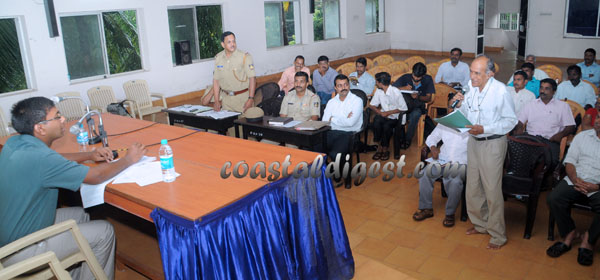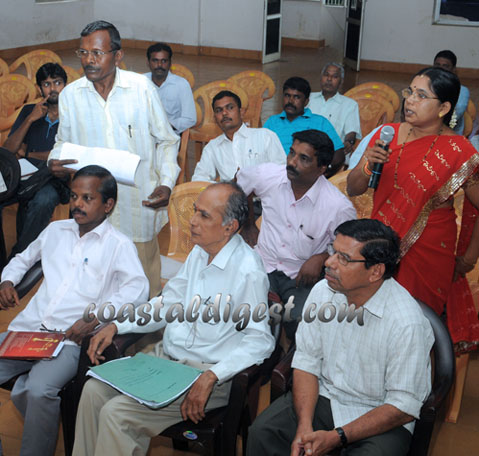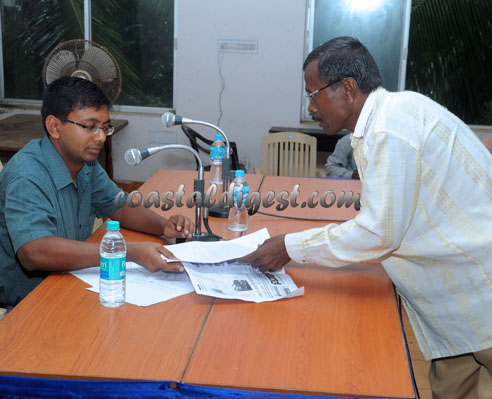
Mangalore, July 1: Police are misusing their power by slapping Atrocity cases against culprits involving in communal clashes, Shekhar Belthangady, a Dalit representative said.
He raised the issue at the monthly SC/ST grievance meet held at the SP's office in Mangalore on Sunday.
Citing an instance of a communal clash that took place in Kuvettu of Puttukere in Belthangady Taluk following blocking of cow transportation on June 14, Mr. Shekhar said that the police had booked cases under the Scheduled Castes and Tribes (Prevention of Atrocities) Act, against the members of another community when people of other castes where also involved and injured.
“Under Atrocity Act, one gets six months of imprisonment. The group which involved in a clash with another community consisted of Dalits but there were people of other castes too. It does not come under Dalit atrocity as such because the intent was not to harm Dalits specifically. Why are Dalits and Dalit laws being used to target a community and settle personal scores? Dalits always end up being the middlemen and the victims. In one of the communal clashes that took place almost 80% of the people who were put in jails were Dalits. In many cases of communal clashes that took place in the district, Dalits were among the ones who got injured so if filing a Dalit atrocity case is the norm, why weren't similar cases filed in communal clashes all these years?” Mr. Shekhar told Coastaldigest.com
Responding to the query, Abhishek Goel, SP, DK, said that the police file cases on a case to case basis and a lot depends on the nature of complaint that the police receive.
SP Anand, District President, DSS (Ambedkar Vada) raised the issue of delay in compensations to victims of atrocity cases stating that many Dalits have been coming all the way from places like Sullia and going back after spending money and time. The SP in his response assured that by next grievance meeting a report would be prepared as to how many compensations have been settled and how long would it take to settle the remaining ones.







Comments
Add new comment